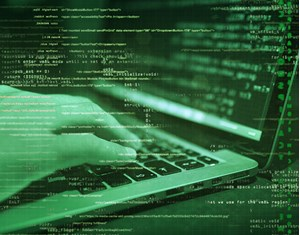by Meeghan Fuhr | Aug 30, 2017

Landlords collect extremely valuable information from residents, including addresses, credit card numbers, social security numbers and bank account numbers, making the multifamily industry an attractive target for hackers. Prevention and detection are key aspects of cybersecurity. What many small multifamily owners and managers don’t know, however, is that they are liable if their residents’ information is stolen.
Small multifamily owners and managers may think they have limited options when it comes to keeping their data secure, but there are many simple preventative measures they can take, and ultimately, it is their responsibility to take them.
“An identity is worth about $10-$20 on the dark net, but the actual liability stemming from its loss could be $158 or more,” said Michael Reese, chief information officer at USA Properties Fund. Multiply that by however many residents are in a database, and you could be looking at millions of dollars.
So, Who is Responsible for Making Cybersecurity a Priority?
A common misconception among management is that cybersecurity is an IT issue when, in reality, every level of an organization needs to be involved and bringing in an outside cybersecurity firm is recommended.
“It’s very difficult to have your own IT department manage your cybersecurity framework. You must have a ‘separation of duties,’ [similar to how] you can’t audit yourself. Cybersecurity is an executive decision, not an IT decision. You need to have governance, policies and procedures, and continuous training and education,” Reese said.
Many people believe they are protected because they have a good firewall, but that is just the first line of defense. “It’s best to have a layered approach,” said Reese, with firewalls, IDS/IPS (intrusion detection systems and intrusion prevention systems), server and workstation anti-virus, and SIEM (security information and event management) software/hardware. Reese also stressed that when you receive a notice that software needs to be updated, don’t ignore it!
Simple, Inexpensive Ways to Lessen the Risk of an Attack
Requiring employees to have strong passwords that are changed regularly is a simple measure multifamily firms of all sizes can implement. “Poor password practices make it that much easier for hackers to get into a company’s network or email,” Reese said. “Passwords that use a combination of numbers, symbols, upper and lower case letters are much more difficult to break.”
Another good practice is to require that Virtual Private Networks (VPNs) always be used for remote access. “If any of your employees work remotely, or link to a public Wi-Fi network (think Starbucks), they should have a VPN network installed on their laptop, tablet or smartphone. A VPN provides a secure path through the web and protects your activities from anyone trying to get in.” Reese noted that there are many relatively affordable options out there.
Additionally, it is important to control access to your firm’s data. “Not everyone in your company needs access to all of the systems and data that you have,” Reese said. “Do sales people need access to personnel files, or do operations people need access to accounts receivable information?” It’s best to limit access to data only to those employees who regularly need it.
Lastly, train employees regularly. “More than 75 percent of hacks come through some action by an employee, usually as the result of phishing,” Reese said. Phishing emails typically appear to come from a “legitimate” source such as a company, customer or employee, with the goal of either obtaining private information or getting the recipient to click attachments that allow malware into the network. “You should train your employees to question these emails and even call the supposed sender to confirm.”
“Train your people to become good ‘cyber-citizens,’” Reese said. “And support a culture of data security!”
You can read the original article at link below from Commercial Property Executive:



